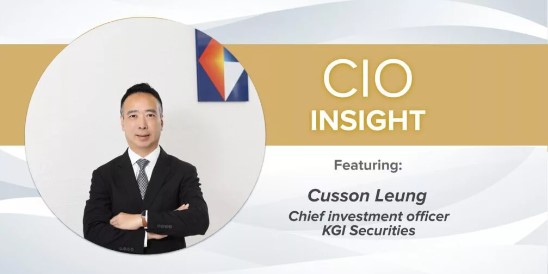
亞洲私人銀行家: 私人銀行家對中國兩會的期待 (只限英文版)
As China’s top leadership gather in Beijing this week for the annual Two Sessions, KGI Securities’ recently appointed CIO Cusson Leung discusses his playbook for the China market.
The Two Sessions (两会) are the annual meetings of the National People’s Congress and the Chinese People’s Political Consultative Conference, held in the Great Hall of the People in Beijing. The meetings begin on March 4and 5this year, and are set to determine the political and economic direction of the world’s second-largest economy.
China playbook
Leung believes that several themes will drive market performance in China, and highlighted artificial intelligence as a primary theme. Chinese startup DeepSeek recently emerged as a significant competitor to US AI companies due to its cost and energy efficiency compared to Western models.
Optimism over the potential for Chinese-led AI developments has helped propel Hong Kong’s Hang Seng index into a bull market in 2025.
“Increasingly, there will be questions regarding the capex-led business model of the AI development. The focus for the AI development will move from 100% focusing on the West, shifting towards the East, and from 100% focusing on the hardware, to increasingly focusing on the software,” he told APB.
Second, he highlighted a weak renminbi as another area of opportunity. “Theoretically, that should benefit all the exporter businesses as the goods become cheaper in terms of US dollar, but at the same time, investors are afraid of the global trade war. Therefore, they would like exposure to exporters which are not relying on the US market. That will be stocks such as BYD, which doesn’t export to the US, being the main beneficiary,” he explained, referring to the Chinese auto giant which makes electric vehicles.
Leung said investors could also potentially benefit from the very low interest rate environment in China by investing in banks with a higher proportion of their income as fee income, due to more Chinese people looking for investment and wealth management products.
Companies with good capital management were also tipped as another area of opportunity. “You will look for companies which, maybe, already have paid high dividends, but they have the scope to increase the dividend payout, to buy back the shares, to enhance the shareholder return. I think those companies do exist, for example, in the telecommunication sector,” he said.
Regarding Hong Kong, Leung said the market is too bearish about the city’s property market, although there are some signs indicating the residential market is recovering. “The yield of the small residential unit has gone back to about three and a half percent and that’s not too far off from the mortgage rate. Very soon, that will go back to a positive territory, and that will help to drive investment demand,” he told APB.
However, he added the firm does not recommend Hong Kong property stocks, in part because there is a lot of scope for the commercial property to decline.
J.P. Morgan veteran Leung joined KGI Securities late last year to drive the company’s investment and asset allocation strategy. This follows the appointment of former head of Singapore and Southeast Asia at J.P. Morgan Private Bank, James Wey, who joined to lead KGI Securities’ international wealth business in August last year.
Tailrisks
Leung also believes the market is not discussing some tailwinds which are deserving of more attention. First, is interest rate risk. “The firm at the moment has less and less expectation of a cut in the Federal Reserve rate,” he said.
KGI Securities previously expected three cuts this year, which was revised to just two, and now potentially just one. “But I think the market is yet to price in a weaker-than-expected economy, which might rejuvenate more rate cut expectations. Weaker retail sales means weaker demand, which might transfer the impact of higher tariffs from consumers to importers,” he said.
Second is currency risk. With a strong US dollar propelled by potential high US rates, Leung said there are many carry trades, such as borrowing yen to buy the US dollar. The possibility of a reversal of the dollar, if the risk of rate cut is on the downside, could drive the unwinding of such trade and send a big shock to the system, according to Leung.
US, EU markets
KGI Securities maintains a neutral weight on the US equity, but is increasingly becoming more cautious on the tech stocks which rely heavily on a Cap Ex-led model. “We will recommend a covered-call strategy for the US tech stocks for protection,” Leung said.
Meanwhile, the earnings growth discrepancy between the Magnificent Seven and the rest of the S&P’s 493stocks is becoming narrower. “We do think that investors should focus back on the S&P 493, which are more traditional businesses in the US stock market,” he said.
Leung added that the US investment grade (IG) corporate debt segment will still attract demand, but added that IG names are not particularly cheap.
“If you’re looking at the balance sheet of the US government versus the US corporate sector, for the Us government, the debt is rising at a consistent pace. On the other hand, the balance sheet situation and the liquidity situation of the corporate sector just keep on improving. We do think that there will be an increasing shift of the money flow from the public debt to the private sector,” he explained.
The firm is generally underweight European equity. But in terms of debts, Leung said KGI Securities will be focusing more on the banks and the financial sector, mainly because of their solid balance sheet and sufficient capital.
“We do think that the European debt will offer some kind of stable income,” he said.
2025年3月5日
